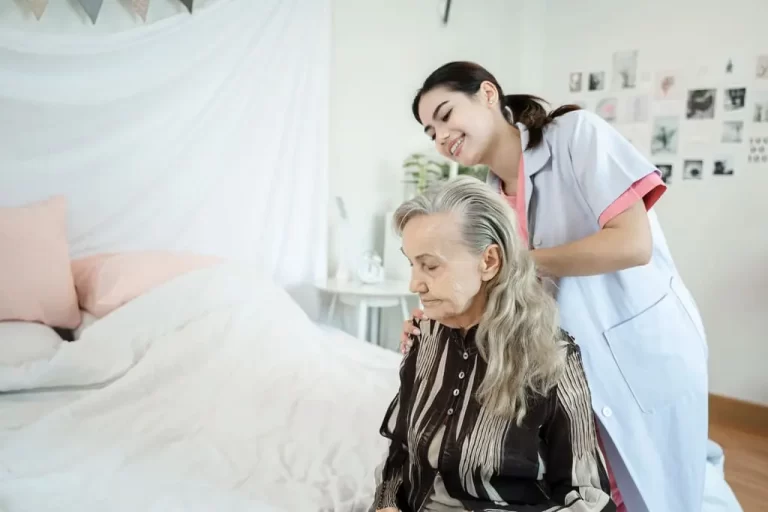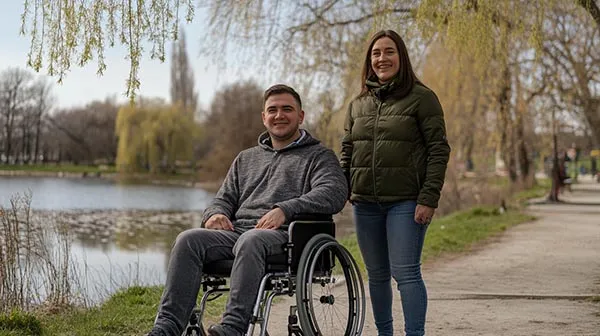Daily Duties of a Care Assistant
Care assistants play a vital role in healthcare and deliver a range of proactive and humanised support. Their goal is to assist people who require additional support while helping them increase their independence and autonomy. The duties of a care assistant vary and depend on an individual’s unique needs and preferences. Key duties often include personal care, mobility support and medication management, with an equally important focus on emotional support and community inclusion.
Personal Care and Hygiene
As the term suggests, personal care tasks involve any support that’s of a personal nature, which may include washing, bathing, toileting, and maintaining personal hygiene. Preserving dignity is a guiding principle in personal care. Care assistants approach each task with sensitivity, recognising individual preferences and respecting boundaries. For example, if an individual prefers showers in the morning but not in the evening, the care assistant will follow their preferred routine. Being able to provide personal care is a critical part of support and is often mentioned in the care assistant job description. Care assistants empower individuals to maintain control over their personal routines through a person-centred approach, promoting autonomy and preserving dignity in every aspect of care.

Mobility Support
Mobility care is designed to support people living with reduced mobility who may need some level of assistance in their daily lives. There are several reasons why someone may choose mobility support, whether due to a disability, complex care needs or difficulties arising from ageing. Recognising the dynamic nature of mobility requirements, care assistants adapt their approach in collaboration with healthcare professionals to accommodate changing needs. Depending on individual needs, mobility support may include helping someone walk, assisting with travel, implementing fall prevention strategies, and encouraging reasonable physical activity.
Meal Planning and Assistance
Collaborating closely with doctors and nutritionists, care assistants can implement personalised meal plans tailored to dietary requirements and preferences. Specially trained caregivers can also provide feeding support, whether assisting individuals with eating or providing PEG feeding. Additionally, care assistants keep meticulous records of food preferences and changes in appetite, providing valuable insights for healthcare professionals to make informed adjustments to the meal plan as needed.
Medication Management
Medication management is a critical responsibility. It requires precision, diligence, and a comprehensive understanding of an individual’s prescribed treatment plan. Medication management encompasses a range of duties, from organising medications to the ongoing assessment of their impact. Establishing trust and open communication, they actively listen to individuals and stay attuned to their health, ensuring the effectiveness of treatment and care.
Responsibilities in Monitoring
Monitoring is a crucial element of caregiving, requiring an attentive and proactive approach. Its purpose is to safeguard the health, well-being and safety of individuals under their care, ensuring that their human rights are always met. There are different facets of monitoring, including observation, reporting, and responding to an individual’s well-being. At the core of monitoring lies a commitment to providing holistic and humanised support, protecting the best interests of people under their care.
Observation and Reporting
Observation and reporting enable caregivers to collect valuable information, identify changes, and communicate effectively with healthcare professionals. Through careful observation, subtle changes in health can be detected, along with mood variations and differences in behaviour. It’s an important part of holistic care that recognises an individual as a whole, understanding that requirements, needs and preferences change. Clear and timely reporting facilitates a collaborative relationship between caregivers and healthcare professionals, allowing for the timely adoption of care plans. Overall, it helps foster a proactive and responsive approach to care, ensuring that any concerns are promptly resolved.
Emotional and Psychological Support
Throughout life, people experience a fluctuation in their emotional and psychological well-being. This can be compounded by stressors, including loneliness, adjusting to care, and dealing with physical challenges. When people feel emotionally low, their perception of themselves and the world around them is often altered. They may focus on negativity rather than seeing the multifaceted nature of existence – not understanding that while everyone experiences challenges, there are multitudes of joy and appreciation to be shared. Providing emotional support is a facet of caregiving where they can help reframe perspectives, build self-esteem, and support people in living their desired lives. Additionally, if mental health conditions arise, care assistants can work alongside other healthcare professionals, like therapists, to provide support and make a real difference to people’s well-being.
Essential Skills for Care Assistants
Working in the care sector isn’t easy, and being a care assistant requires a specific set of skills and traits. Society often underrepresents the skills needed to be a care assistant, not accounting for the emotional intelligence, communicative abilities, and adaptability these professionals possess. While some skills can be learnt, many caregivers have a natural ability to understand others and view the care assistant role as a vocation rather than a job.
Empathy and Compassion
Empathy is the capacity to perceive the world from a different perspective and to recognise and validate emotions. An empathetic caregiver can discern unspoken needs and find alternative communication methods, fostering a sense of being truly seen and understood. Compassion goes hand in hand with empathy, representing the active expression of care and concern. It is a pillar of caregiving and ensures that people receive care that is proactive, respectful and driven by kindness. This emotional attunement enables caregivers to provide a profound level of emotional support and understanding, ultimately enhancing well-being.
Communication Skills
Caregivers are in consistent communication with supported individuals and must understand how to communicate respectfully and effectively. They often adjust their communication methods to individual needs and need to be skilled in non-verbal communication and reading body language. Due to its importance, strong communication abilities are often requested in care assistant job descriptions. With that said, communication isn’t just about conveying information; it includes active listening to comprehend concerns and preferences and promoting a collaborative and respectful care environment.
Adaptability and Flexibility
Adaptability and flexibility are essential skills that enable care assistants to navigate healthcare with resilience and responsiveness. People receiving care may experience fluctuations in health, well-being, or even preferences. Caregivers who are adaptable can modify routines and approaches to accommodate changes, ensuring that care remains relevant and effective. Flexibility is a skill parallel to adaptability, as it measures how easily caregivers can adjust to changes. For example, if an individual has a sudden desire to engage in a particular activity, caregivers must be able to assess the situation, gauge whether it’s suitable, and quickly adapt to changing needs. Everyone deserves to live on their own terms, and caregivers must respect people’s wishes and be flexible in their approach to care.
Nurseline Healthcare Provide Quality Care Assistants
At Nurseline Healthcare, we understand the critical role that care assistants play in enhancing well-being. Without consistent and proactive support, healthcare facilities risk a decline in the quality of care, directly impacting the well-being of the individuals they serve.
Providing staffing solutions and bespoke transitional support, Nurseline Healthcare equips providers with reliable and well-trained clinicians. Our unique transitional support model ensures timely wrap-around support for people facing a crisis in the community or who are at risk of hospital admission. Additionally, we carefully match our clinicians to specific care requirements, helping people receive care tailored to their needs and preferences.
We train our clinicians in PROACT-SCIPr-UK® and Positive Behaviour Support (PBS) to provide humanised care, offering extensive in-house training programs.
With 24/7 availability and services delivered across the UK, Nurseline Healthcare offers tailored care you can rely on.
Contact us today to build a collaborative and proactive partnership.







